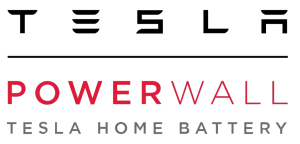One-Stop Store's Solar Success
System Size
19.6
Kwh
Panels Installed
49
400 Watts
Savings
£11,560
Annually
Reduction in Bill
68%
After installation
Solar Hat-rick for Pro Solar Manufacturers increasing Revenue
Client Overview
One-Stop is a retail convenience business operating 1000 shops, prioritizing exceptional customer service in neighborhood locations. Despite their dedication to service excellence, the annual power consumption of approximately £17,000 presented a significant operational cost.
Solar4Good Results
To address rising electricity expenses and support business growth, Solar4Good implemented a 19.6kWh solar system for One-Stop. This solution aimed to reduce their reliance on traditional energy sources and provide long-term financial benefits.
RESULTS
Cost Savings:
One-Stop experienced a substantial reduction in their electricity bill, decreasing from £17,000 to approximately £5,440 annually.
Business Growth:
With savings on energy expenses, One-Stop could allocate resources to further enhance their customer service and expand their business operations.
Financial Sustainability:
By leveraging solar energy, One-Stop ensured a more stable financial future, allowing for continued profitability and growth in the competitive retail market.
Why Solar?
We wanted to reduce our electricity bills and do our part for the environment. Solar was the perfect solution.
Why Now?
Energy prices are rising, and we didn’t want to delay any longer. The sooner we start, the sooner we save!
Why Solar4Good?
They were highly recommended and offered a great deal. Plus, their expertise with flat roofs sealed the deal for us.
Summary
In summary, the collaboration between One-Stop Store and Solar4Good showcases the transformative impact of solar solutions on business operations. By reducing costs, fostering growth, and promoting sustainability, One-Stop positioned itself for long-term exceptional customer service.










Featured On














Frequently Asked Questions
A commercial solar system is a solar power installation designed for businesses, organizations, or commercial properties to generate electricity from sunlight. It typically involves a larger-scale setup compared to residential systems.
Cost savings: Solar energy can significantly reduce electricity costs for businesses, leading to long-term savings.
Environmental sustainability: By using solar power, businesses can reduce their carbon footprint and demonstrate their commitment to sustainable practices.
- Tax incentives and rebates: Many jurisdictions offer financial incentives, tax credits, and grants to encourage commercial solar installations.
- Brand reputation and marketing advantages: Going solar can enhance a company’s reputation and attract environmentally conscious customers.
- Energy independence and reliability: Generating on-site solar power reduces dependence on the grid and can provide a reliable source of electricity.
The cost of a commercial solar system varies depending on factors such as system size, location, energy consumption, equipment quality, and installation requirements. It is advisable to consult with solar providers and obtain quotes tailored to your business’s specific needs.
In many cases, a commercial solar system can offset a significant portion of a business’s energy consumption. However, the system size needs to be carefully planned based on energy demand and available roof or ground space. Some businesses may combine solar power with other energy sources for full coverage.
Yes, there are various financing options available for commercial solar installations. These may include solar loans, power purchase agreements (PPAs), solar leases, and energy performance contracts (EPCs). Each option has its own advantages and considerations, so it’s recommended to consult with financial institutions and solar providers to determine the best fit for your business.
The installation time for a commercial solar system depends on the project’s complexity, size, and any necessary permits or approvals. It can range from several weeks to a few months.
Commercial solar systems typically require minimal maintenance. Regular inspections, cleaning of solar panels, monitoring of performance, and ensuring proper functioning of inverters are essential. Some solar providers offer maintenance packages and monitoring services to optimize system performance and address any issues promptly.
Yes, commercial solar systems can be combined with energy storage solutions, such as batteries. Energy storage allows businesses to store excess solar power for use during periods of low solar generation or during grid outages, providing increased energy independence and flexibility.
The permits and approvals required for a commercial solar system installation vary depending on local regulations, building codes, and utility requirements. These may include obtaining building permits, interconnection agreements, and inspections. It is advisable to consult with solar providers and local authorities to ensure compliance with all necessary requirements.
Net metering or feed-in tariff programs may allow businesses to sell excess electricity generated by their commercial solar systems back to the grid. The availability and terms of such programs depend on the specific location and utility policies.
Consulting with experienced solar providers and energy consultants is crucial for accurate information, system design, and customized solutions for commercial solar installations.





